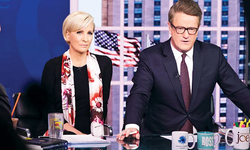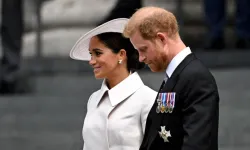The NO FAKE Act, which stands for Cultivate Originals, Support the Arts, and Keep Entertainment Safe, is a bipartisan proposal that would prohibit individuals or companies from utilising artificial intelligence to create an unauthorised digital copy of their likeness or voice.
The primary sponsor of the bill is Senator Chris Coons (D-Del.), the chairman of the Senate Intellectual Property Subcommittee.
According to Senate aides, Senator Coons and his colleagues, Senators Amy Klobuchar (D-Minn.), Marsha Blackburn (R-Tenn.) and Thom Tillis (R-N.C.), are still engaged in discussions with artists, the recording industry and the film industry regarding the finer details of the proposed legislation. .
"It is imperative that we craft a national artificial intelligence bill, as the world as we know it will be irrevocably altered if we fail to do so," Klobuchar stated.
"Songwriters, actors, and our exceptionally talented creative community deserve the right to have their own voice, image, and likeness," added Blackburn, the leading Republican on the bill.
The potential impact of artificial intelligence on the entertainment industry was brought into sharp focus last week by the dispute between actress Scarlett Johansson and the producer of ChatGPT, OpenAI.
"It is imperative that we craft a national artificial intelligence bill, as the world as we know it will be irrevocably altered if we fail to do so," Klobuchar asserted.
"Songwriters, actors and our exceptionally talented creative community deserve the right to have their own voice, image and likeness," Blackburn, the leading Republican on the bill, added.
She accused OpenAI of using a voice "eerily similar" to her own for its new chatbot, despite the company having previously declined her request to use her voice. OpenAI subsequently ceased using the voice in question, although the reason for this was not specified.
76th Cannes Film Festival - Press conference for the film
Furthermore, music artists are increasingly concerned that there is little protection of their own names, likenesses and voices being used to create AI-generated songs.
In a recent interview, musician Sheryl Crow observed that the situation had reached a critical point. "The toothpaste is out of the tube," she said, referring to the increasing prevalence of AI-generated songs.
Crow went on to highlight the need for action, noting that artists are facing challenges in protecting their intellectual property.
She cited instances where artists' voices were used without permission, including the case of an anonymous artist who released a song called "Heart on my Sleeve" that imitated the voices of Drake and The Weeknd.
Crow also highlighted the use of deceased artists' voices, as well as instances where artists' voices were used without compensation. She emphasized the urgent need for action to address these concerns.














